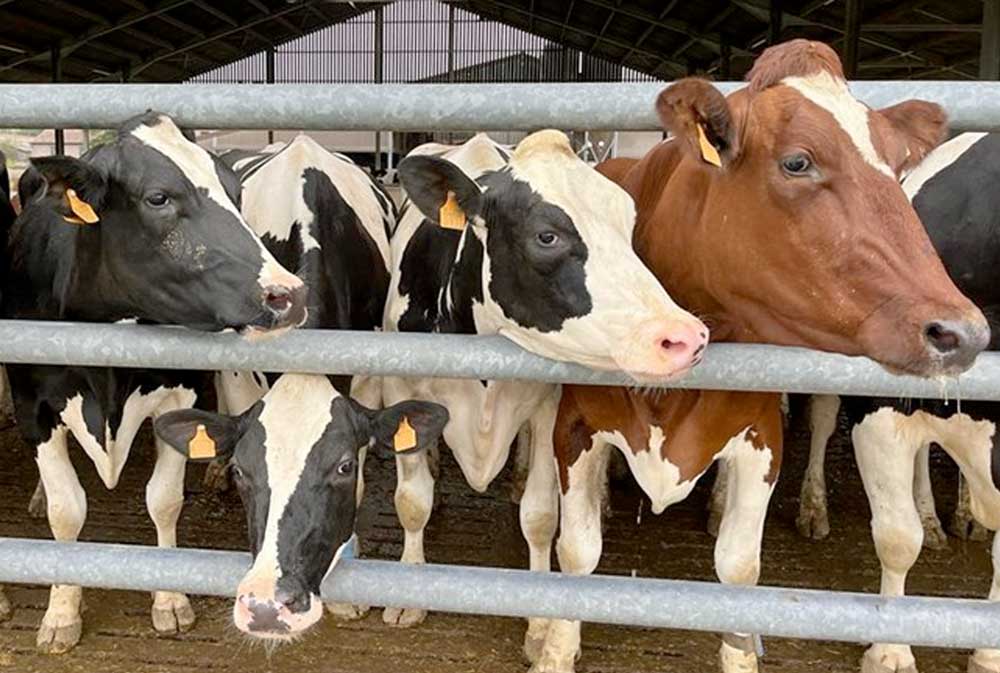Recent data has shown that mycoplasma continues to be spread far and wide across the UK, and that its presence, in combination with other bacteria or viruses, is linked to respiratory problems, such as Bovine Respiratory Disease.
Farmers are being urged to investigate the causes of pneumonia and coughing calves and youngstock and take steps to understand the mycoplasma status of their herds.
In the run-up to the spring turnout, farmers are being asked to screen cattle and look for mycoplasma in the serological investigation.
Recent data has shown that mycoplasma continues to spread far and wide across the UK, and that its presence, in combination with other bacteria or viruses, is linked to respiratory problems, such as Bovine Respiratory Disease. Mycoplasma also presents as mastitis, arthritis and swollen legs in heifers ahead of calving.
The warning comes from new independent industry-based organisation Ruminant Health and Welfare, which says once established it is difficult to treat.
Nigel Miller, Ruminant Health and Welfare chief executive, said farmers should take steps to identify the mycoplasma status of their herd and understand potential risks and plan disease management accordingly.
“We must remember that although we often experience coughing in housed calves and feeding cattle, it isn’t inevitable. Even if clinical pneumonia is avoided, coughs signal the loss of performance in the herd.”
Mycoplasmas are very small bacteria that belong to the class Mollicutes, with Mycoplasma bovis of most concern to UK cattle farmers due to its defence mechanisms which make it difficult to treat.
Increased M. bovis rates
“Mycoplasma bovis lacks a cell wall so some widely used antibiotics are not effective in treating it. The bacteria also has the ability to change its surface proteins to evade the cow’s immune response, while an ability to produce a sugar matrix biofilm means it can temporarily hide from both the immune system and antibiotics,” said Miller.
Dairy beef systems are particularly at risk due to a combination of factors, including:
– Calves receiving sub-optimal passive immunity
– The mixing of calves from herds of different mycoplasma status
– Instances of poor hygiene in calf rearing units
– Laboratory diagnostic rates for Mycoplasma bovis have risen over the past 10 years, with vets also seeing an increase on-farm in a range of clinical problems caused by the bacteria. The risk of mycoplasma infection highlights the need for farmers to work with their vets to ascertain their herd’s risk status.
CHeCS veterinary director, Keith Cutler, said a whole herd approach to health management was needed to minimise the mycoplasma risk.
“Although the use of vaccines can play a positive role, farmers need to look at all aspects of health management with their vet, including the environment, hygiene, immunity, monitoring and management of infection pressures.
“They should play close attention to the mycoplasma status of any herds they are buying stock from, as purchased cows or heifers infected with the bacteria are considered one of the largest risk factors for infecting a herd,” he added.
A study published in the UK in November found 18 farms tested positive for Mycoplasma bovis out of 41 examined, while a further 6 were inclusive or void.
Graeme Fowlie, director of Meadow Vets in Aberdeenshire, Scotland, said his practice had been using blood tests on calves over 5 months old to screen herds. “Dairies could also be screened via bulk milk serology. Sick animals can be identified with PCR testing of either nasal swabs, post-mortem material, joint fluid of milk samples.”

